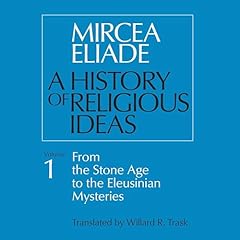
Gnostic Philosophy
From Ancient Persia to Modern Times
No se pudo agregar al carrito
Solo puedes tener X títulos en el carrito para realizar el pago.
Add to Cart failed.
Por favor prueba de nuevo más tarde
Error al Agregar a Lista de Deseos.
Por favor prueba de nuevo más tarde
Error al eliminar de la lista de deseos.
Por favor prueba de nuevo más tarde
Error al añadir a tu biblioteca
Por favor intenta de nuevo
Error al seguir el podcast
Intenta nuevamente
Error al dejar de seguir el podcast
Intenta nuevamente
 Exclusivo para miembros Prime: ¿Nuevo en Audible? Obtén 2 audiolibros gratis con tu prueba.
Exclusivo para miembros Prime: ¿Nuevo en Audible? Obtén 2 audiolibros gratis con tu prueba.
Elige 1 audiolibro al mes de nuestra inigualable colección.
Acceso ilimitado a nuestro catálogo de más de 150,000 audiolibros y podcasts.
Accede a ofertas y descuentos exclusivos.
Premium Plus se renueva automáticamente por $14.95 al mes después de 30 días. Cancela en cualquier momento.
Compra ahora por $22.49
-
Narrado por:
-
Michael Moynihan
-
De:
-
Tobias Churton
• Explains how the Gnostic understanding of self-realization is embodied in the esoteric traditions of the Rosicrucians and Freemasons
• Explores how gnosticism continues to influence contemporary spirituality
• Shows gnosticism to be a philosophical key that helps spiritual seekers "remember" their higher selves
Gnosticism was a contemporary of early Christianity, and its demise can be traced to Christianity's efforts to silence its teachings. The Gnostic message, however, was not destroyed but simply went underground. Starting with the first emergence of Gnosticism, the author shows how its influence extended from the teachings of neo-Platonists and the magical traditions of the Middle Ages to the beliefs and ideas of the Sufis, Jacob Böhme, Carl Jung, Rudolf Steiner, and the Rosicrucians and Freemasons. In the language of spiritual freemasonry, gnosis is the rejected stone necessary for the completion of the Temple, a Temple of a new cosmic understanding that today's heirs to Gnosticism continue to strive to create.
The Gnostics believed that the universe embodies a ceaseless contest between opposing principles. Terrestrial life exhibits the struggle between good and evil, life and death, beauty and ugliness, and enlightenment and ignorance: gnosis and agnosis. The very nature of physical space and time are obstacles to humanity's ability to remember its divine origins and recover its original unity with God. Thus the preeminent gnostic secret is that we are God in potential and the purpose of bona fide gnostic teaching is to return us to our godlike nature.
Tobias Churton is a filmmaker and the founding editor of the magazine Freemasonry Today. He studied theology at Oxford University and created the award-winning documentary series and accompanying book The Gnostics, as well as several other films on Christian doctrine, mysticism, and magical folklore. He lives in England.
Los oyentes también disfrutaron:




















Reseñas de la Crítica
"Recommended for upper-level academic collections that specialize in early Christianity, religion, or philosophy."
"Exhaustive (but not exhausting) in scope and copiously annotated, [Churton's] work will spice up virtually any reading list of Gnosticism and early Christianity. . . . will pique the interest not only of professional academics but anyone interested in the Gnostics through the centuries."
"Churton separates the wheat from the chaff and disposes of unnecessary speculations and fantasy. To get a good handle on what Gnosticism is really all about (and isn't), a great place to start is with Gnostic Philosophy by Tobias Churton."
"GET THIS BOOK. This is, quite simply, one of the best books I have read this year. Though I could, with plenty of justification, describe this work as erudite, witty, humorous, profound, engaging, or any of a number of depictions, none of these would convey the sense of validation I got with devouring its pages."
"We desperately need a solid historical overview of Gnosticism which is historically credible and yet not too academic to put it out of reach of the average reader and this book is it. To get a good handle on what Gnosticism really is (and isn’t), a great place to start is with Gnostic Philosophy by Tobias Churton."
Las personas que vieron esto también vieron:










There is a bit more optimism at the end than I am comfortable with, striking a particularly dissonant note when he gives a nod to UK King Charles as the benefactor of a spiritual organization. I suppose Churton is clear about his stance in conspiracy (he is not disposed to belief in them). However it's possible that has gone too far into denial. Churton also seem a bit rosy dispositioned on the topic of A Crowley. I can't find evidence that Crowley was a pedophile, but I have found disturbing accounts of the treatment of his girlfriends, wives and children. I don't know of a more important yardstick for how good a person is, regardless of their revolutionary contributions.
I read and listen to plenty of sources and academics who are not concerned with conspiracy and who don't believe in it. I have to give Churton approval for this excellent, clearly highly educated and responsible work.
sober, grounded academic treatment.
Se ha producido un error. Vuelve a intentarlo dentro de unos minutos.


